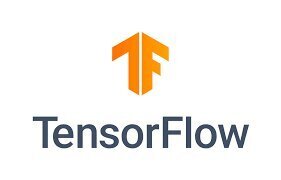TensorFlow is an open-source machine learning framework developed by Google, designed to facilitate the creation and deployment of machine learning models. It provides a comprehensive ecosystem for building and training models, making it a popular choice among researchers and developers in the field of artificial intelligence.
Key Features
-
Eager Execution: TensorFlow 2.x emphasizes eager execution, allowing developers to run operations immediately as they are called within Python, which simplifies the debugging process and enhances the development experience.
-
Keras Integration: TensorFlow includes Keras, a high-level API that simplifies building and training deep learning models. Keras provides an intuitive interface for defining neural networks, making it accessible for beginners while still being powerful enough for advanced users.
-
Flexible Model Building: TensorFlow supports various model architectures, including sequential models, functional API models, and subclassing models. This flexibility allows developers to tailor their models to specific tasks and datasets.
-
Robust Libraries and Extensions: TensorFlow offers a range of libraries for specialized tasks, such as TensorFlow Hub for reusable model components, TensorFlow Probability for probabilistic reasoning, and TensorFlow Graphics for computer graphics functionalities. These extensions enhance the capabilities of TensorFlow for various applications.
-
Cross-Platform Support: TensorFlow can run on multiple platforms, including CPUs, GPUs, and TPUs, making it suitable for both research and production environments. Its compatibility with different operating systems and devices ensures that models can be deployed widely.
Community and Resources
TensorFlow has a vibrant community that contributes to its development and offers extensive resources for learning and troubleshooting. The official TensorFlow documentation provides comprehensive guides, tutorials, and API references, which are essential for both newcomers and experienced users. Additionally, TensorFlow supports integration with platforms like Google Colab, enabling users to run notebooks in the cloud without any setup.
Overall, TensorFlow stands out as a powerful and flexible tool for machine learning, catering to a wide range of users from beginners to advanced researchers, and continues to evolve with ongoing contributions from the community and advancements in technology[1][5].
Further Reading
1. TensorFlow 文档风格指南 | TensorFlow Core
2. TensorFlow – Writing TensorFlow Documentation
3. 在 TensorBoard 中显示文本数据 | TensorFlow
4. tensorflow-coder/Tutorial.md at master · google-research/tensorflow-coder · GitHub
5. TensorFlow Core
Description:
An open-source framework for building and deploying machine learning models.
IoT Scenes:
Image recognition, Predictive maintenance, Natural language processing, Anomaly detection
IoT Feasibility:
High: Widely supported with extensive resources and tools for various IoT scenarios.


